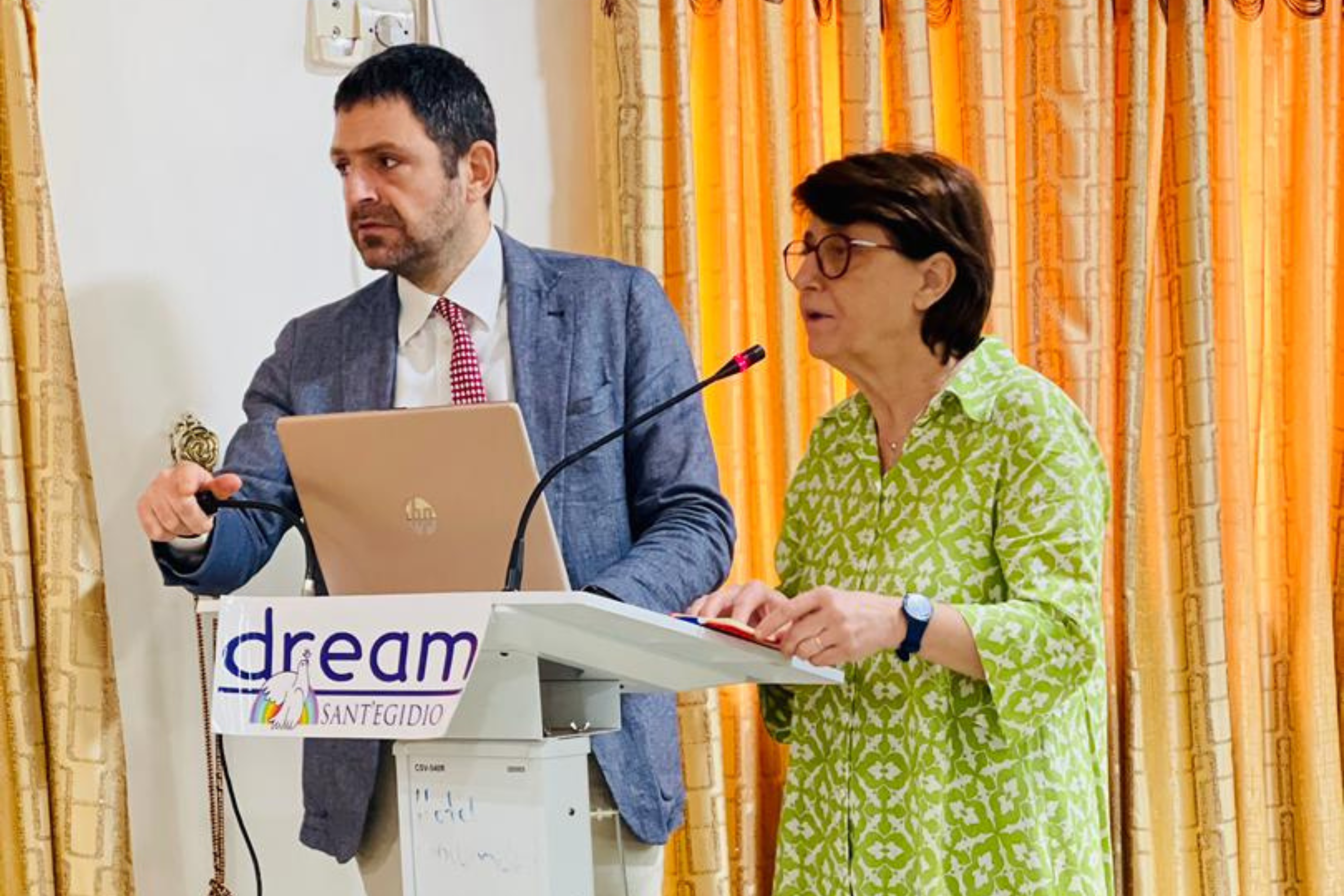Overcoming stigma: an Analysis of access to HIV care in Guinea
On February 4, a workshop on operational research was held at the University of Conakry under the title “DREAM: Investigation on Barriers to Treatment Adherence in the City of Conakry and the Prefectures of Dubréka and Coyah.” The event was dedicated to presenting the results of a study conducted as part of the A.S.S.I.S.T. project, funded by the Italian Agency for Development Cooperation through the 5% funds of the Global Fund.
The project has supported the DREAM Program in reducing HIV mortality and incidence by ensuring universal access to HIV/TB prevention and treatment in Guinea. Specifically, it has contributed to improving access to free and quality healthcare services for HIV/TB in the cities of Conakry, Coyah, and Dubréka.
The aim of the study was to analyze the relationship between patients undergoing treatment and healthcare centers, identifying the main challenges in accessing and continuing treatment. Since HIV therapy is a lifelong commitment, adherence to treatment is a crucial aspect. The study, approved by the National Bioethics Committee, was carried out in collaboration with the University of Rome Tor Vergata, which developed a questionnaire administered to patients to collect significant data.
During the conference, the research results conducted by Tor Vergata were presented, highlighting how social stigma remains a significant obstacle for people with HIV in Guinea. The collected data show that HIV infection is still a taboo subject in many Guinean families, leading to patient isolation and making adherence to treatment more difficult. However, many respondents reported finding support and comfort through dialogue with healthcare workers and activists at DREAM centers.
The event saw the participation of a wide range of stakeholders and partners of the DREAM Program, including representatives of the Ministry of Health (National Program for the Fight against HIV and Hepatitis and the Project Management Unit financed by the Global Fund), the CNLS of the Prime Minister’s Office, the UNAIDS country director, researchers from the University of Conakry, representatives of local health departments, NGOs active in the sector, associations of people living with HIV, the representative of AICS, and the new Italian Ambassador to Guinea.
Numerous speeches and questions animated the conference’s closing session, with particular attention to the gender differences that emerged from the study and the best strategies to break the silence on a disease that, while treatable, remains a taboo. Social isolation, in fact, makes it more challenging for patients to sustain complex therapy in the long term, emphasizing the importance of targeted initiatives to raise awareness among the population and promote a more inclusive and supportive environment.
